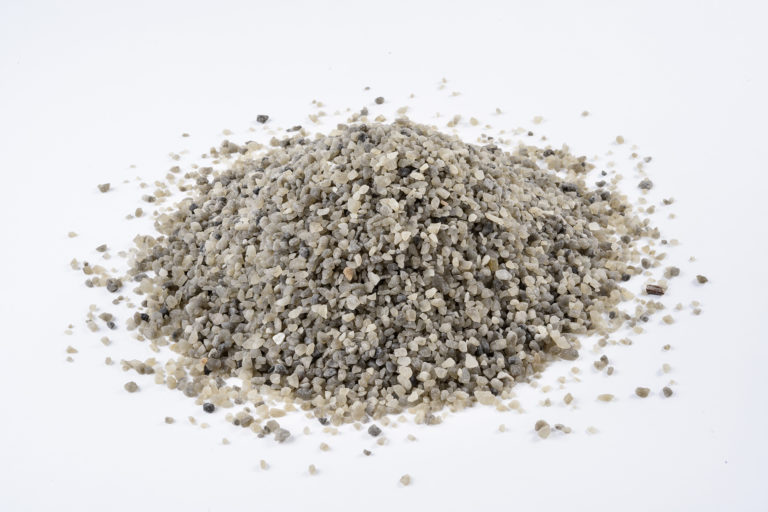Polysulphate
mineral fertiliser for organic farming

Polysulfate is an mineral fertilizer of a unique composition, which makes it an ideal choice of sulfate fertilizer and opens the possibilities to fulfill the potential of a variety of organic crops. Polysulfate is well-suited for potatoes, vegetables and berries that have a somewhat higher potassium requirement than those covered with regular fertilizers. Polysulfate is a coarse-grained granulate and comes from a natural mineral deposit that is mined in England.
The minerals in Polyphosphate consist of potassium, magnesium and calcium sulphate and also have low chlorine content. These sulfates are fully water-soluble and therefore readily absorbed by growths. The product has a grain size distribution between 2-4 mm and has a spreading capacity of up to 36 m with centrifugal spreader.

Polysulfate is:
Easily accessible - already in its soluble, sulphate form for immediate use
A granular sulfur form, which provides flexibility to tailor the use
Concentrated, has little storage need and is quick to disperse
A source of potassium, magnesium and calcium - an added bonus
Low chloride, so suitable for chloride sensitive crops
Environmentally friendly as it is used in its natural state - no processing or waste products, and no acidification
Studies have shown that the mineral reserves in the soil eventually decline. But not always, for example, most of the potassium in a harvested grain crop will be in the straw. So when it is commercially reasonable to sell straw, it is important to increase potassium inputs to compensate. The potassium in Polysulphate complements routine fertilizer applications.
Magnesium is often only added directly to some crops and vegetables. Magnesium is part of the chlorophyll in all green plants and crucial for photosynthesis. It is removed in considerable quantities by harvesting all crops, and Polysulfate will provide a useful supply of a nutrient often overlooked.
The fourth component of Polysulfate is calcium, which means that Polysulfate actually has no non-nutrients. Calcium is responsible for proper plant cell division and for strengthening cell walls. Polysulfate helps maintain essential calcium reserves in the soil.
Polysulfate is particularly suitable for crops that prefer low levels of chloride in the soil, such as in fruits, and where higher solids are desirable in potatoes and other vegetables.
General recommendations
Crop
Objective
Recommendation
Grain and oilseed
Apply at the beginning of spring, to oilseed rapeseed to optimize the synthesis of yield, protein and oil. For wheat to increase yield and to ensure grain protein quality. On painted barley for yield and quality.
Added after soil analysis
Peas
Apply directly in the seedbed or immediately after germination. This is a zero-N fertilizer that brings readily available sulfur to the crop, and can therefore be picked up by the plant at an early stage to feed the nitrogen fixation, which occurs in the roots and for protein synthesis in the plant.
Added after soil analysis
Grass
The use of livestock manure and manure is not a safe source of available sulphate, and is best regarded as maintaining soil reserves. Polysulfate should be applied in accordance with nitrogen requirements as needed to achieve optimal grass growth throughout the season in proper N: S ratio.
Added after soil analysis

Analysis
Sulfur
Potassium
Magnesium
Calcium
Chlorides
Sodium oxide
19,2 %
11,6 %
3,6 %
12,2 %
5,0 %
4,4 %

Content
Polysulfate comes from the polyhalite layer of rock mass, about 1000 meters below the North Sea off the North Yorkshire coast of the United Kingdom. Founded 260 million years ago, the minerals lie in a special niche of natural ash from the earth's ancient times. Contents:
48% SO3 as sulfate
14% K2O from potash sulphate
6% MgO as from magnesium sulfate
17% CaO from calcium sulfate

Recommendation
Refer to soil and any leaf analysis, as well as consult your advisor, plant nutritional needs and crop level.
Polysulfate can be applied before growth starts in the spring. The goal is often to adapt the sulfur requirements to the crop's nitrogen requirements.
Where the amount of nitrogen is varied, for example in precision fertilizers, the Polysulfate amount can be varied to best match the total nitrogen use.
